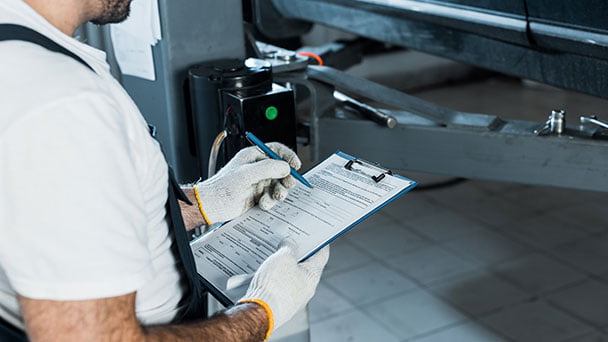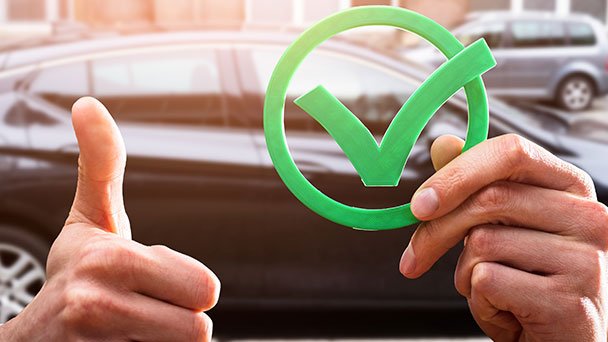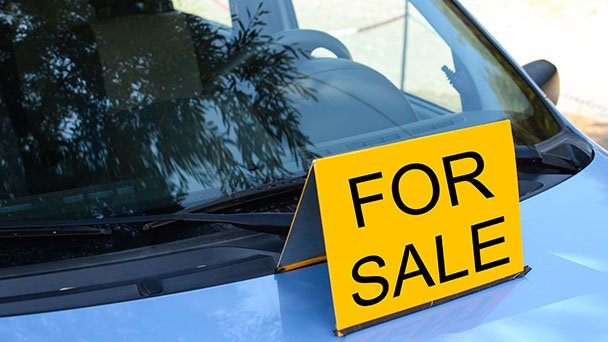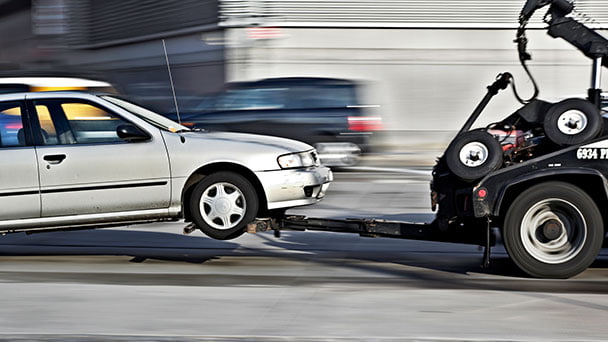Learn how car valuation works in NSW. Get expert tips on age, mileage, market trends & tools for pricing your car competitively whether selling or buying.
As you probably know, a roadworthy certificate proves that a vehicle is safe to drive on Australian roads.
So, you may be wondering if you can sell your car without a current roadworthy certificate?
Well, the short answer is - it depends.
In Australia, the rules are a little different between each of the states and territories. Also, these laws and legislations change from time to time.
So, read on to learn exactly what this means for you and your current situation.


Also known as an RWC, a safety certificate or pink slip, a roadworthy certificate is essentially proof that a vehicle is legally safe to drive in Australia.
Generally speaking, new cars are considered safe to drive for the first 5 years without requiring further inspection. After this time, however, the vehicle must pass an annual safety test before it is possible to renew the rego.
If at any time a vehicle fails this roadworthy test then registration renewal is not possible and the current registration may become invalid.


In Australia, the law varies from state to state. So it is always best to check with your state government website for the most up-to-date requirements.
However in general, if you sell a vehicle as unregistered, you do not need a roadworthy certificate. But of course, you must disclose this information to the buyer.
If on the other hand, you want to sell a vehicle as registered, you may need a roadworthy certificate. This requirement depends on the state in which the vehicle is registered and where you are selling it.
For example, in Victoria, the seller must acquire a roadworthy certificate to sell a car as registered.
Otherwise, you must remove the number plates and hand them back to the motor registry to cancel your registration. Then you can sell the vehicle as unregistered.
Whereas, in New South Wales, if the vehicle has valid registration, you do not need to obtain a new roadworthy certificate to sell it as registered.
This presents more risk for the buyer as the vehicle may have hidden defects that will not be discovered until renewing the registration. Remember that when renewing the rego for a vehicle older than 5 years, it must first pass a safety test.
This is why it is recommended that you always do your due diligence when buying a second-hand car, just to make sure there are no defects or hidden issues.


As mentioned, some Australian states require you to have a roadworthy certificate to sell the car as registered.
In general, selling a registered car is always going to allow you to sell it for a higher price. So when selling in these states, it is usually worth the cost. Especially if the car does not have any defects.
Even if your state does not require it, as a seller you can show that it has passed this safety test to prospective buyers. This should remove some barriers for the buyer to help you with the sale.
If however, you will only be able to gain a roadworthy certificate after doing hundreds or thousands of dollars worth of repairs, then it may be better to sell the car as unregistered.
Although, it will usually be easier to sell a vehicle that is safe with a valid roadworthy certificate. After all, who wants to buy a car they cannot legally drive?
The exception to this is for rare and collectible vehicles. These buyers will not be bothered if it is unregistered. Collectors will still pay top dollar for hard-to-find vintage cars that are not working and need significant work.
A roadworthy certificate, also known as a "pink slip", is a certificate that ensures buyers that the car is safe for the road.
This puts your buyer's minds at ease and potentially makes your car sell faster.
In addition, you can also get a better price for selling a car with a roadworthy certificate.


If you don't want to obtain an RWC or if your car is unlikely to pass a safety inspection without spending a hefty amount to fix it up, don't despair. There are several ways to sell your car without a roadworthy certificate easily.
Car wreckers often buy cars for cash regardless of their condition. Even if it's no longer running, has severe damage and is unregistered. They usually fix these cars themselves or strip the vehicle to sell its spare parts.
For cars that are in really bad shape, such as totally wrecked vehicles, wreckers may only pay the worth of the scrap metal. So even though you feel your wreck is worthless, you'll always be able to get something out of your old car.
Another option may be to sell your vehicle through a car dealership. But not all dealers will take cars that fail safety tests and even if they do you won't always get the best price when selling to a dealership.
Either way, this removes the burden of fixing your car and takes the stress off your shoulders.


Essentially, you cannot sell a car as being roadworthy if it is not. Also, as the seller, you should always be truthful in your advertisement and conversations with potential buyers.
If you want to sell a car as registered, then you may need a roadworthy certificate depending on where you are selling.
Also, you can sell a car without a safety certificate however you may need to sell the car as unregistered.
If you sell a car as unregistered, the new owner is now responsible for obtaining a roadworthy certificate before he/she can register the vehicle in their name.
The exact law varies from state to state and can change over time too. So it is always best to check for current legislation.
Learn how car valuation works in NSW. Get expert tips on age, mileage, market trends & tools for pricing your car competitively whether selling or buying.
Discover how to sell your unwanted car for cash in Australia with our step-by-step guide. Tips on preparation, legal steps, & maximizing your sale
The time it takes to sell a car privately depends on several factors. In general, it takes from 1 week to 3 months. Learn how to sell your car faster
Planning to sell several unused cars in your garage? Check out how many cars you can sell without a dealer's license & learn more about the dealer's license.